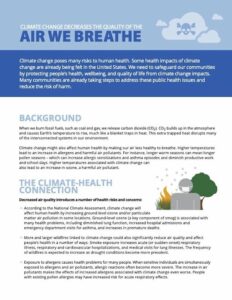Climate action requires research
and collaboration.
In Maryland We Have
The General Assembly
Where you can find your representatives, get information about how the Maryland Legislature works and see where introduced bills are being discussed, and if they have passed. Watch MDGA Video Tutorials.
Maryland Department of the Environment
In 1987, the Maryland Department of the Environment was created to protect and preserve the state’s air, water and land resources and safeguard the environmental health of Maryland’s citizens. MDE’s duties also encompass enforcement of environmental laws and regulations, long-term planning and research. MDE provides technical assistance to Maryland industry and communities for pollution and growth issues and environmental emergencies. Watch MDGA Video Tutorials.
The Commission of Environmental Justice and Sustainable Communities
Is tasked with advising State government agencies on environmental justice and analyzing the effectiveness of State and local government laws and policies to address issues of environmental justice and sustainable communities.
The Maryland Commission on Climate Change (MCCC)
Is chaired by the Maryland Department of the Environment (MDE) and consists of members representing state agencies and the legislature, local government, business, environmental non-profit organizations, organized labor, philanthropic interests, and the State University system.
Maryland Clean Energy Center
The Maryland Clean Energy Center (MCEC) is a corporate instrumentality of the state, created by the General Assembly in 2008, with a statute-directed mission to advance clean energy and energy efficiency products, services, and technologies as part of a specific economic development strategy.
Featured Reports

CDC Climate and Health
Climate change is projected to harm human health by increasing ground-level ozone and/or particulate matter air pollution in some locations.

Carbon Pricing in a Just Transition: A Policy Framework and Case Study of California Cap-and-Trade
Carbon pricing is a promising policy option to help facilitate the transition to a green sustainable economy. It also has the potential to provide substantial and crucial revenue to fund the diverse solutions needed for a rapid transition.
Why Price Carbon
Carbon Tax Policies
Carbon pricing is an instrument that captures the external costs of greenhouse gas (GHG) emissions—the costs of emissions that the public pays for, such as damage to crops, health care costs from pollution, and loss of property from, fires flooding and sea level rise—and ties them to their sources through a price, usually in the form of a price on the carbon dioxide (CO2) or CO2 equivalents emitted.Climate Countdown
“Price On Carbon Pollution” Award Winner of the Film4Climate Global Video Competition 2016 presented by Connect4Climate and partners.
How Do Carbon Markets Work?
The Center on Global Energy Policy at Columbia University SIPA
A price on carbon makes those responsible for the damages caused by greenhouse gas emissions pay for those damages. The primary objective of a carbon price is to change behavior.
